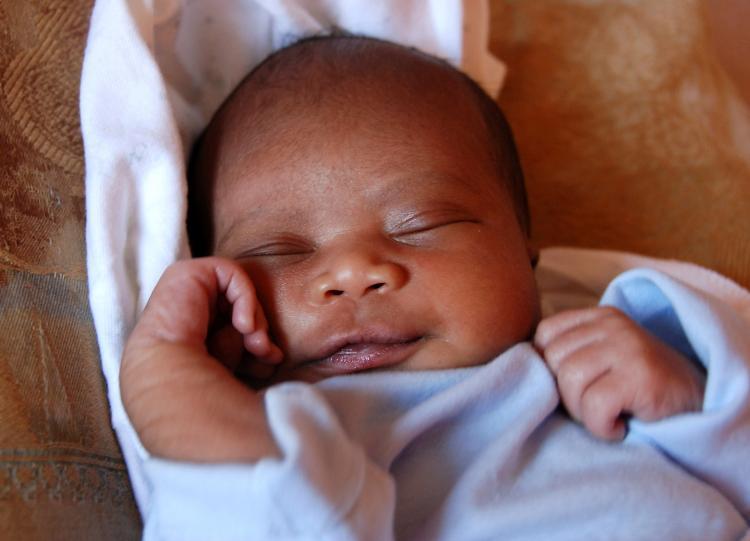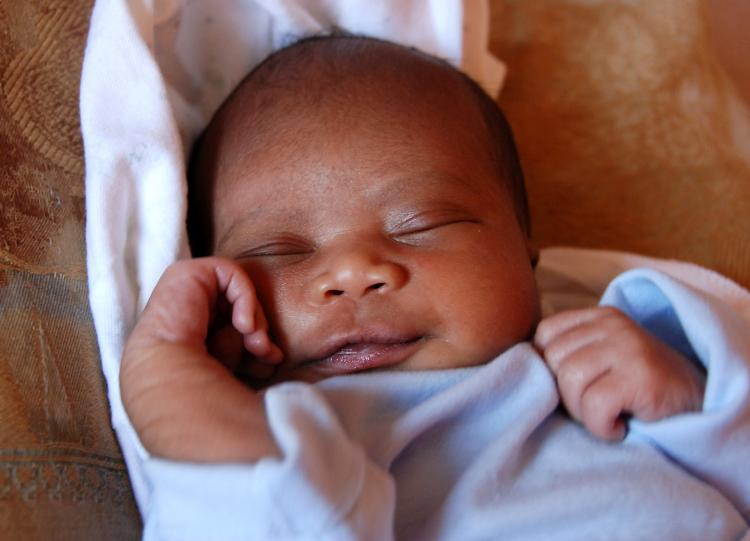On the first days of their lives, French babies already cry in a different tone from German babies.
In a study published last week, researchers from France and Germany compared recordings of 30 French and 30 German infants aged between two and five days old. The French newborns cried in rising tones, while German infants cried in falling tones.
The researchers believe that the crying tones correspond to the differing intonation patterns of the two languages. These patterns are perceived by the fetus in the mother’s uterus during the last trimester of the pregnancy.
“The sense of hearing is the first sensory system that develops. The mother’s voice, in particular, is sensed early on,” said Dr. Angela Friederici, director of the Neuropsychology department at Leipzig, Germany’s Max-Planck-Institute for Human Cognitive and Brain Sciences, in a press release.
Yet the fetus’s hearing in the uterus is restricted due to the amniotic fluid.
“What gets through are primarily the melodies and intonation of the respective language,” said Friederici.
Especially with the large differences existing between spoken German and French, the crying patterns of the German infants mostly began loud and high and followed a falling curve, while the French infants more often cried with a rising tone.
“In French, a lot of words have stress at the end, so that the intonation rises, while in German, it is mostly the opposite,” said Friederici.
The researchers said that this early sensitivity to features of intonation may later help the infants learn their mother tongues.
Other researchers include those from University of Würzburg in Würzburg, Germany; and Ecole Normale Supérieure in Paris, France.
To see the research paper, please visit http://www.littleurl.net/d09cb9
In a study published last week, researchers from France and Germany compared recordings of 30 French and 30 German infants aged between two and five days old. The French newborns cried in rising tones, while German infants cried in falling tones.
The researchers believe that the crying tones correspond to the differing intonation patterns of the two languages. These patterns are perceived by the fetus in the mother’s uterus during the last trimester of the pregnancy.
“The sense of hearing is the first sensory system that develops. The mother’s voice, in particular, is sensed early on,” said Dr. Angela Friederici, director of the Neuropsychology department at Leipzig, Germany’s Max-Planck-Institute for Human Cognitive and Brain Sciences, in a press release.
Yet the fetus’s hearing in the uterus is restricted due to the amniotic fluid.
“What gets through are primarily the melodies and intonation of the respective language,” said Friederici.
Especially with the large differences existing between spoken German and French, the crying patterns of the German infants mostly began loud and high and followed a falling curve, while the French infants more often cried with a rising tone.
“In French, a lot of words have stress at the end, so that the intonation rises, while in German, it is mostly the opposite,” said Friederici.
The researchers said that this early sensitivity to features of intonation may later help the infants learn their mother tongues.
Other researchers include those from University of Würzburg in Würzburg, Germany; and Ecole Normale Supérieure in Paris, France.
To see the research paper, please visit http://www.littleurl.net/d09cb9






